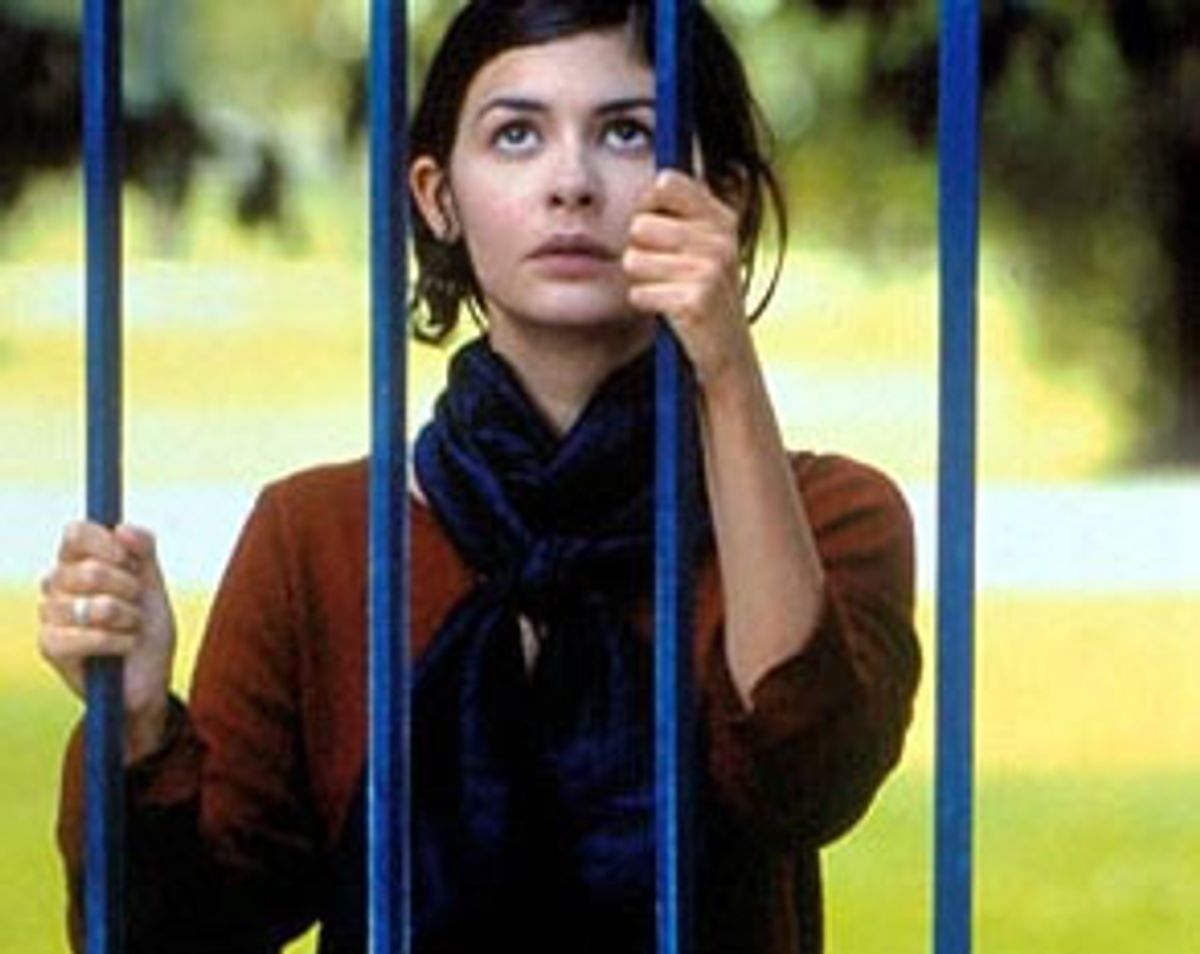"He Loves Me, He Loves Me Not," is the kind of movie you shouldn't read a word about beforehand if you truly want to be surprised by its twists and turns. That's because it's not half as clever as its setup leads you to think it might be: It's all buildup and no payoff, the kind of romantic thriller in which if just one sensible character called the police at the moment as any normal human being would -- well, then, you wouldn't have a movie.
It's impossible to talk about "He Loves Me, He Loves Me Not" in any reasonable way without giving away at least a few of the pertinent details, so consider this your spoiler alert. The debut feature of writer-director Laetitia Colombani, "He Loves Me" is the story of Angélique (Audrey Tautou), a promising young art student who has fallen madly in love with a married cardiologist, Loïc (Samuel Le Bihan). After their first meeting she sends a single rose to his office; she puts on a slinky dress and shows up at one of his professional functions, sidling up to him discreetly; in her figure-drawing classes, she sketches the nude model exactly as he appears -- except with Loïc's face.
The first half of "He Loves Me" is told from Angélique's point of view, and it suggests some reasonable explanations for why she'd believe that her overheated affections for Loïc are reciprocated. But "He Loves Me" is one of those movies that inches up to a pivotal point only to unzip itself, to show us the reality behind the carefully sectioned and manipulated story we've already seen. As it turns out -- and this is supposed to be something of a surprise, even though any reasonably sentient moviegoer could probably figure it out in the movie's first 10 minutes -- Angélique suffers from erotomania, a disorder in which one person becomes romantically fixated on another and believes wholeheartedly, despite any and all evidence to the contrary, that his or her feelings are returned. In other words, she's a stalker.
And so, when the delusional Angélique spots Loïc kissing his pregnant wife (Isabelle Carré), we see her rosy lips purse into a resolute pout. Shortly thereafter, she borrows a friend's motor scooter without asking. And not long after that, she shows up two hours late for her waitressing job with a bloodied arm, the front half of the scooter banged up and mangled.
It sure looks like bad news and, (spoiler alert!) sure enough, it is. Colombani makes us wait until the second half of the movie to find out exactly what happened in the scooter incident, and while it's clear she doesn't exactly expect us to be surprised, the problem is that we wonder what all the suspense is about in the first place. The first half of "He Loves Me" sometimes seems to want to be a black comedy -- and it probably would have been much more effective as one -- but Colombani doesn't calibrate it to be either funny enough or dark enough. "He Loves Me" is nicely shot by Pierre Aim (the first half in bright, clear, rosy shades, the second in murkier, more ominous tones). But the movie's split narrative structure ends up being nothing more than an excuse for clever filmmaking: Colombani drops clues like crumbs in the first half, only to scurry around sweeping them up in the second. It's interesting as far as it goes; it just doesn't go very far.
That's partly because Angélique has enablers at every turn, people who should be able to spot how loony she is and who willfully turn the other way. These include a young doctor-in-training (Clement Sibony), who, clearly smitten with her, supplies her with a (spoiler alert!) yucky medical specimen, which she wraps up prettily and sends to Loïc's office as revenge for his "mistreatment" of her. Is that crazy or is it just French? And, even if you were a young doctor in love, wouldn't you be able to make the distinction?
It's possible that in the movie's first half we're supposed to believe, at least halfheartedly, that Angélique's friends might be blind to her seriously delusional state. But, after all, this is Amélie! And with her dancing brown eyes, perky pixie smile and girlishly disheveled ponytail, how could she be anything but a harmless, mischievous charmer?
But come on: If you had to pick the insane pixie out of a police lineup, wouldn't Audrey Tautou be your first choice? (Come to think of it, she played a cutie-pie stalker in "Amélie," too. Is it such a leap from assembling mysterious mash notes out of torn-up photo-booth pictures to sending -- spoiler alert! -- pickled animal hearts wrapped up in beribboned boxes?)
Tautou, a young and as yet untested actress, may prove to have a broader range than she shows in this movie and in "Amélie" (her best-known performance to date). But she needs to ditch the coy routine, and fast. In cranking up the cuteness factor in "He Loves Me," she's not playing against type; she's playing right into it. Her Angélique is not so different from Amélie, save for a better haircut. And the sight of either of them coming down the pike should be enough to make any reasonable soul head for the hills. Overuse of dimples should be an international offense, but since it's not, most of us have to rely on common sense. If you fall for the ruse, it's your own damn fault.

Shares